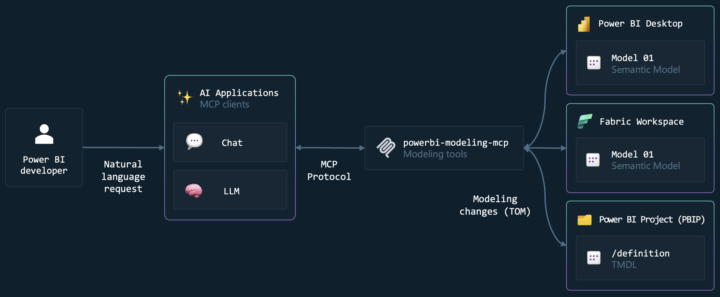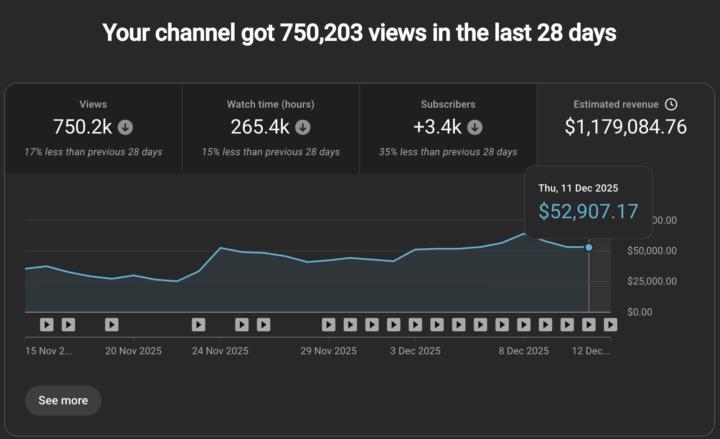
Write something
Pinned
Welcome to Data Alchemy - Start Here
The goal of this group is to help you navigate the complex and rapidly evolving world of data science and artificial intelligence. This is your hub to stay up-to-date on the latest trends, learn specialized skills to turn raw data into valuable insights, connect with a community of like-minded individuals, and ultimately, become a Data Alchemist. Together, let's decode the language of data and shape a future where knowledge and community illuminate our way. Rules - Don't sell anything here or use Data Alchemy as any kind of funnel - We delete low effort community posts, and posts with poor English. Proofread your post first. - Help us make the posts high quality. If you see a low quality post, then click on the 3 dots on the post and "Report To Admins". Start by checking out these links - Classroom - Introduction - Roadmap - Contribution Be Aware of Scammers - Please be aware that this is a public group. Unfortunately, some people abuse the Skool platform to send DMs or post comments to trick people. This is the internet, so always do your own due diligence. Never automatically trust someone here on the Skool platform other than @Dave Ebbelaar's official account. To kick things off, please comment below, introducing yourself. Let us know: 1. Your name and where you're from 2. What project(s) you're currently focused on See you in the comments!

Pinned
Unlock New Courses at Level 3
Hey everyone, I just completed a new course for you: "Data Science Accelerator". This course will be unlocked, together with "Building Applications with LLMs" at level 3. How to level up? Just interact with the group, get likes and comments, and watch your level go up!

The missing layer in most data stacks: decision memory
Most data stacks are excellent at answering: “What happened?” Very few are good at remembering: “Why did we decide this?” That’s a massive blind spot. Every meaningful decision creates context: • assumptions • confidence level • alternatives considered• time pressure And then… it disappears. High-maturity data systems include decision memory. Here’s what that looks like: 1️⃣ Decision Logging Not just outcomes, but: • what signals triggered action • what thresholds were crossed • who (or what) made the call 2️⃣ Assumption Tracking Every decision is tied to assumptions. When assumptions change, the system flags it. 3️⃣ Outcome Attribution Did the decision Help ?Hurt? Have no effect? Most teams track results but not causality. 4️⃣ Feedback into Models Signals that consistently mislead get down-weighted. Reliable ones gain influence. This turns hindsight into learning. 5️⃣ Retrieval at Decision Time When a similar situation appears, the system surfaces: • past decisions • outcomes • lessons This is institutional memory — automated. Data alchemy isn’t about storing facts. It’s about remembering judgment. The future belongs to systems that don’t just analyze the past, but learn from their own decisions.
Power BI Modeling MCP Server: Revolutionize Your Data Analysis
30 minutes instead of 3 hours. Yes, you read that right. I discovered Power BI Modelling MCP Server and it completely changed how I analyze data. Context: Analyzing the downloads data of my ebook "The AI & Data Alphabet 2025" ➤ Before: 2-3h manual cleaning + DAX measures creation ➤ After: 30 minutes flat What changed: ✓ Automated data cleaning ✓ Intelligently generated DAX measures ✓ Optimized relational model effortlessly Result? I can finally focus on : → Design → Visualization → The story my data tells No more time wasted on repetitive tasks. AI handles the technical work, I focus on insights. Need to analyze your Excel or Google Sheets data to save precious time? Comment "MCP" or contact me directly here:eufyves@gmail.com See the demo here : https://www.linkedin.com/posts/sikati-yves-joseph-039215330_powerbi-mcp-dataanalytics-activity-7405983959383293952-FufT?utm_source=share&utm_medium=member_desktop&rcm=ACoAAFNTSu0BMmAIuDsPU-opNQXNfJE12Ba-Vg4 and follow me on on my socila media availble here : https://bit.ly/m/yvesvirtuel #share #entrepreneur #AI #africa #education

“This Is What Real YouTube Growth Looks Like”
750K views in 28 days yet the real lesson isn’t the views. 📊 Notice the dip? That’s what happens when systems slow down, not when “the algorithm hates you.” In YouTube automation, growth isn’t about viral spikes. It’s about retention, packaging, and consistency working together even during pullbacks. Smart operators don’t panic on red arrows. They diagnose, adjust, and scale what’s repeatable. Question for you: When your numbers drop, do you blame YouTube or audit your system? 🤔 👇 Comment below Or connect with me via my Telegram channel or WhatsApp for deeper breakdowns.

1-30 of 4,191

skool.com/data-alchemy
Your Community to Master the Fundamentals of Working with Data and AI — by Datalumina®
Powered by






